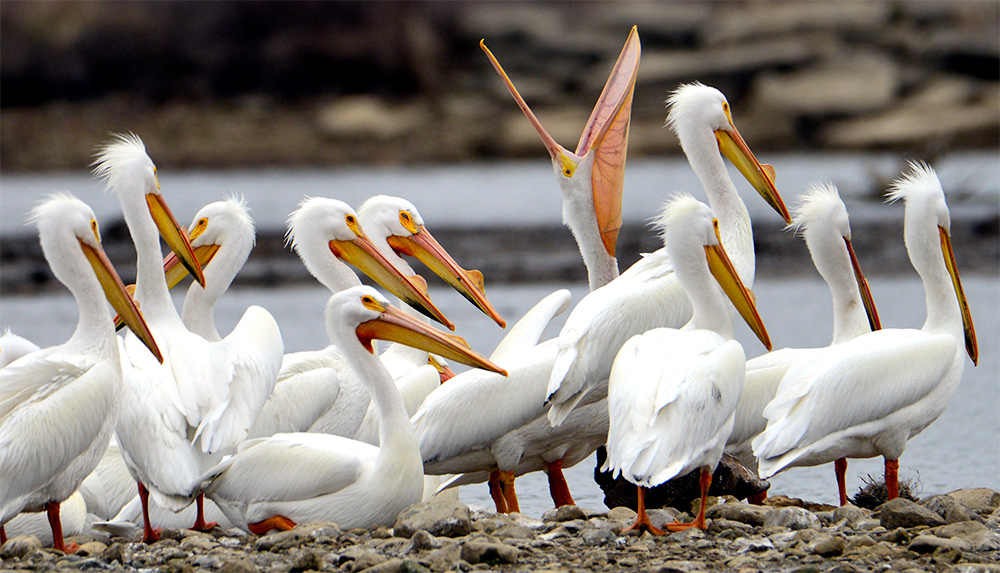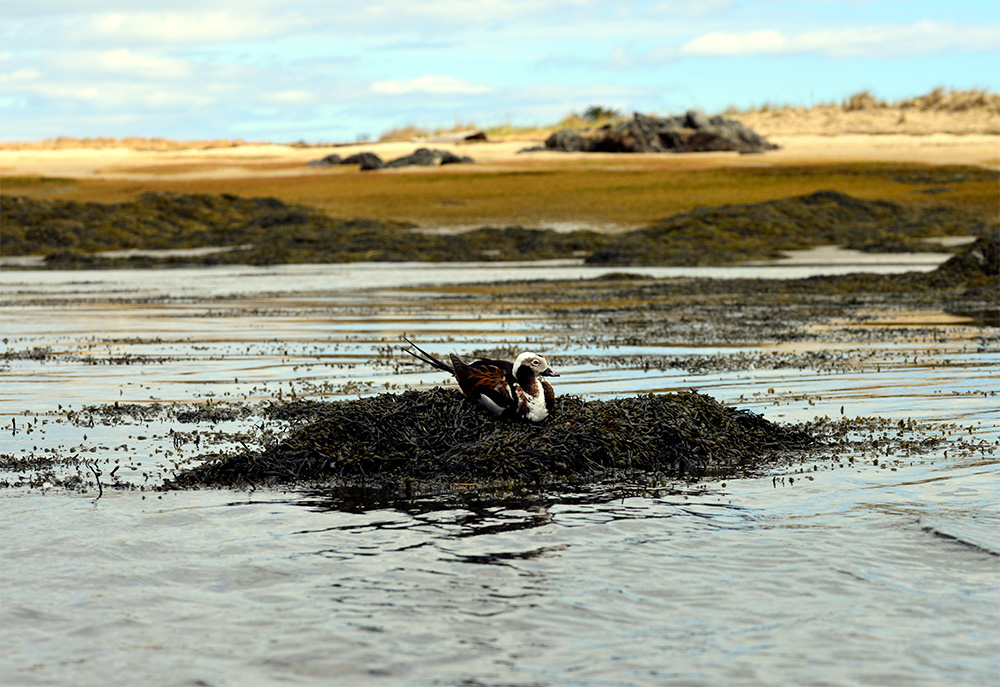Mallards – IUCN Conservation Status: LEAST CONCERN Mallards are the most common duck in North America I took this photo while kayaking on Eagle Creek Reservoir. You can often see mallards while at this park. On this day, I was on the far north end of the reservoir when I came across these two. This […]
White Pelican
American White Pelican – IUCN Conservation Status: Least Concern The beak of American white pelicans can be as long as 15 inches! American white pelicans can grow to be over five feet in length! Part of that length is their beak, which can grow to be fifteen inches long! Adult wingspans can approach ten feet. These birds typically […]
Oystercatcher
American Oystercatcher – IUCN Conservation Status: Least Concern The orbital ring of an oystercatcher is orange-red This exotic looking bird is called an American oystercatcher, and it can be found in North, Central, and South America. This bird has a distinctive large orange beak that is used to access and consume shellfish. Obviously, oystercatchers catch oysters, but […]
Black Skimmer
Black Skimmer – IUCN Conservation Status: Least Concern It takes less than a month for a black skimmer to learn to fly! This is what it looks like inside a flock of black skimmers. Let’s unpack what we are looking at. This seabird is mostly black, with a white head. It has a unique beak. The base of the […]
Mexican Jay
Mexican Jay – IUCN Conservation Status: Least Concern Mexican jays are closely related to crows and magpies Matt, Kenny, Nick, and I were descending from Emory Peak in Big Bend National Park when we came across this blue bird sitting in a tree. It was just a little bit above head height, as we were […]
Snowy Egret
Snowy Egret – IUCN Conservation Status: Least Concern This photo is courtesy of a long walk on the beach This photo of a snowy egret was taken while on a birding walk on Siesta Key beach in Florida. For my birthday, I had received a rental from LensRentals.com. I had decided to rent a Sigma […]
Brown Pelican
Brown Pelican – IUCN Conservation Status: Least Concern I’ve watched brown pelicans diving my entire life I absolutely love this photo because of the splash of water that you can see behind the brown pelican as it started to take off from the water. I don’t know which of us was more startled when I […]
Black Vulture Eating Alligator Carcass
BLACK VULTURE – IUCN Conservation Status: LEAST CONCERN The black vulture flipped its head upside down to fit inside the alligator In this photo, the carcass of a recently deceased alligator is being eaten by a flock of black vultures. If you look closely, you can see this vulture actually flipped its head upside down so […]
Great Blue Heron
GREAT BLUE HERON – IUCN Conservation Status: LEAST CONCERN Great blue herons nest in trees! To me great blue herons are one of the most elegant birds. From my observations, they can sit absolutely still for hours while they hunt in the shallow water for fish. I enjoy looking at any wildlife that I go […]
Long-tailed Duck
LONG-TAILED DUCK – IUCN Conservation Status: VULNERABLE These ducks are able to dive deeper than any other ducks! This duck’s name fits the bill. As you can see in this photo, the long-tailed duck does indeed have a long tail. In fact, the tail can reach about six inches long. What else makes this duck so unique? Long-tailed ducks […]









